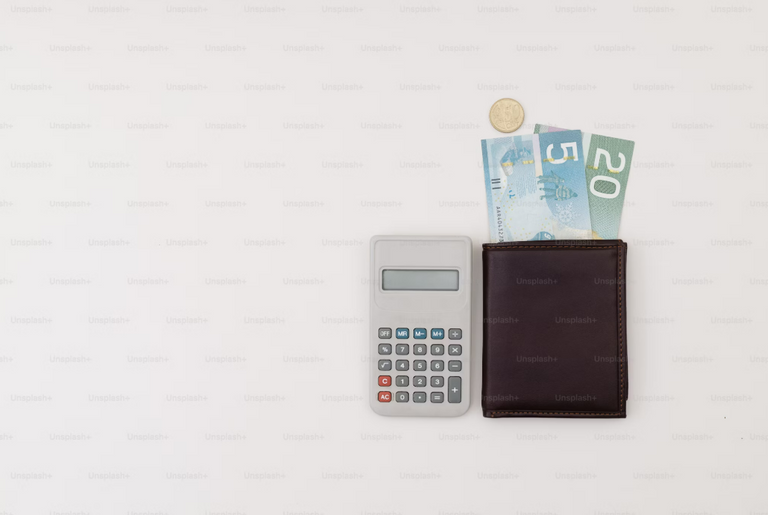Grocery shopping can be expensive, but planning ahead can make a big difference. Making a detailed shopping list beforehand helps keep the focus on buying only the essentials and avoid impulsive shopping. Whenever possible, buy in bulk as larger quantities offer discounts and there is less need to visit the market frequently.
Instead of branded products, try local and generic alternatives. These are not only cheaper in price, but the quality is also better or equal. Buying seasonal fruits and vegetables is also a good option as they are not only fresh but their prices are also cheaper. Frozen and canned items are also good alternatives as they have a longer shelf life and can be used anytime.
Take advantage of discounts and special offers. Supermarkets and local stores often run sales and promotions that give you a chance to save a lot of money. Join loyalty programs, which can get you extra discounts and cashback. Setting a weekly or monthly budget is also important so that you don't waste a lot of money on groceries each month.
Give preference to cooking at home and avoid ready-made or processed food. This is not only expensive but is also less nutritious. Reuse leftover food or include it in new dishes, which reduces food waste and saves money.
Comparing prices before going to the store is a great way to save money. Nowadays many grocery stores update their prices online, so you can easily compare prices and shop from a cheaper place. Local markets and wholesale stores are often cheaper than supermarkets, so exploring them can be a better option.
Using coupons and discount vouchers is also important. Grocery stores and online platforms offer new discount codes and offers every month that can reduce grocery bills significantly. If possible, also use app-based cashback offers that can give you extra money back on your purchase.
Give more preference to home-cooked meals and do not spend money on unnecessary snacks and fizzy drinks. These things are not only expensive but also not very beneficial for health. If you like drinks, get into the habit of making herbal teas or fresh juices at home, which are not only healthy but also budget-friendly.
Meat and dairy products often form a major part of the grocery budget, so keep their consumption balanced. Instead of eating meat every day, make dal, chana and others a part of your diet which are both nutritional and economical. If buying meat is essential then save money by not buying big packets as it is cheaper than buying in small quantities.
Another good habit is to set a fixed day for grocery shopping and avoid small shopping at times. With every small visit chances of impulsive shopping increases which can disturb the budget. Check your kitchen inventory and make a plan to use the things which are already in stock to avoid both wasteful shopping and food wastage.
Another way to save money is to fill your stomach before grocery shopping. When one is hungry, one tends to buy more unnecessary things, which is not good for the budget. Therefore, eating something before shopping is a small habit that can help save a lot of money.
While making the grocery list, do meal planning. By preparing the menu every week or month, you will have to buy only those things which are really necessary. This method not only saves you from extra shopping, but also reduces wastage in the kitchen.
Keeping staple foods such as rice, flour, dal and cheese in stock is a good way to save money. Whenever there is a sale, it is better to buy these basic items in larger quantities to avoid paying a big price. But, stock only those things that you actually consume.
Show interest towards locally grown and organic products. Imported and processed foods are not only expensive, but their quality is also not always good. Shopping from the local market and mandi also saves money and you get fresh items.
Growing some groceries at home is also a great way to save money. It is easy to grow small plants like coriander, spinach, chilli or tomatoes in a small place or balcony. Not only are they fresh and chemical-free, they also reduce grocery bills.
Time for shopping also plays an important role in saving money. There is less rush in grocery stores in the morning or on weekdays and you can find better discounts. Prices often go down during weekends and salary weeks, so avoid shopping during these days.
It is also important to track the money saved. If you write down in a small diary or mobile app how much you spend on groceries every month, you can plan better. This habit will help you understand which things are essential and on which money is being wasted.
Try to do your grocery shopping in cash, because shopping with credit or debit card makes a person tempted to spend more. When cash is limited, then buying only essential items is given priority, which is the best way to keep the budget under control.
Another way to save is to shop from wholesale or discount marts instead of grocery stores. These places often sell the same items at cheaper prices which are costlier in branded stores. Buying more quantity also gives extra discounts, which proves to be helpful in reducing the monthly grocery budget.
Using homemade alternatives is also a good way to save money. Develop the habit of making bakery items, snacks, and sauces at home as these are more economical and healthier than buying from the market. If you do a little planning, eating home-made food not only saves money but also time.
Use more of seasonal and locally available foods as these are cheaper than imported or off-season items. Shopping from local mandis and roadside vendors is also beneficial as the prices there are lower than supermarkets. Not only do you get fresh produce this way, you also support the local economy.
Learning food preservation techniques is also a great way to reduce your grocery budget. If you have a surplus of fresh fruits or vegetables, try freezing or pickling them so they last longer. This way you won't have to buy the same items at a higher price in the future.
Having a weekly or monthly grocery challenge is also a good idea. This means that you set a specific amount for each month and try to manage your grocery needs within that. This method not only saves money but also improves shopping habits and prevents buying unnecessary things.
Community shopping or grocery shopping with friends and family can also help save money. If bulk quantities of something are cheaper, buy it with friends or relatives and split the cost. This is a simple and effective way to save money.
Another important rule of grocery shopping is to explore new products and deals every time. Often people go for the same store and brand, while better alternatives are available at different shops. So doing a little research before shopping can help save money.
Another way of saving is to fix a fixed time and day for grocery shopping. Going to the market every day or every few days eliminates the chance of unnecessary shopping. If you shop for a month or two, you can avoid impulsive spending and also save money on petrol or transportation.
Store dry items in good quality storage containers so that they last longer. Dal, rice, flour and spices, if stored properly, do not require much time and can be used for a longer time. This small habit is a great way to reduce grocery waste and reduce the need to buy new items.
Develop the habit of making homemade snacks and beverages. Instead of chips, biscuits, and carbonated drinks, you can make cheap and healthy options at home, like popcorn, fruit chaat or lassi. This is not only budget-friendly but is also good for health.
Develop the habit of reusing leftovers. Often people throw away leftover food, which can be converted into new dishes. For example, leftover roti can be used to make bread crumbs or paratha, and vegetables or meat can be used in soup or fried rice.
Online grocery shopping can also be a good option as you can easily find great deals and make price comparisons. Often online platforms offer free delivery or discounts, which is better than physical stores. Online shopping also prevents impulsive buying.
Analyze your grocery shopping habits over time and see where you are overspending. If a specific item is costing you too much, look for an alternative or try to reduce its usage. These small things together can make a noticeable difference in your grocery budget.



